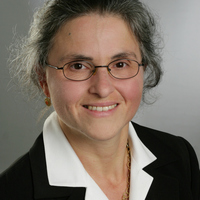- Friedrich-Schiller-Universität Jena
Institut für Orientalistik, Indogermanistik, Ur- und Frühgeschichtliche
Archäologie
Zwätzengasse 12
07737 Jena
Research Interests:
In Modern Welsh, the intensifier X hun(an) is also used as a reflexive pronoun. However, this functional expansion is recent and becomes productive only after the Middle Welsh period. The present quantitative study based on the corpora... more
In Modern Welsh, the intensifier X hun(an) is also used as a reflexive pronoun. However, this functional expansion is recent and becomes productive only after the Middle Welsh period. The present quantitative study based on the corpora Rhyddiaith y 13eg Ganrif and Rhyddiaith Gymraeg / Welsh Prose 1300-1425 reveals that in Middle Welsh X hun(an) is used almost exclusively as an intensifier, while reflexivity is coded by the verbal prefix ym-or by plain pronouns. Verbs coded with either strategy have very similar semantics, denoting positive or negative self-directed actions. It is however difficult to find a feature that connects the fourteen, partly controversial instances of reflexive X hun(an) contained in the corpora. 1 INTRODUCTION The different types of reflexive markers are a much discussed areal feature of the languages of Western Europe. * While the markers of most European languages, like e.g. German sich, French se or Italian si are based on the PIE reflexive pronoun *s(w)e 1 , English and the neighbouring Insular Celtic languages Welsh and Irish 2 employ different markers originating from intensifers. As a result, reflexive markers and intensifiers are different in the former group, but not in the latter. German expresses reflexivity with the pronouns mich, dich, sich, etc. (ex. 1a, 1b), while uninflected selbst 'self' is used as an intensifer (ex. 1c adnominal, 1c adverbal), English uses my-, your-, himself, etc. in both cases. (1) (a) German Ich sehe mich im Spiegel. reflexive English I see myself in the mirror. (b) German Er spricht ständig mit sich. reflexive English He keeps talking to himself. (c) German Der Präsident selbst wird der Feier beiwohnen. intensifier English The President himself will attend the ceremony. (d) German Der Präsident schrieb seine Rede selbst. intensifier English The President wrote his speech himself. A formal similarity of intensifiers / reflexives is to be observed especially between English and Welsh. Both languages have complex markers consisting of a pronoun inflected according to person, number and gender coupled with a second element, which is self in English, hun in North Welsh and hunan in South Welsh (table 1). In addition, both markers originate from intensifiers and are in use with such function.
Research Interests:
To be published in "Ulidia 4. Prodeedings of the Fourth International Conference on the Ulster Cycle of Tales. Queens-University, Belfast, 27-29 June, 2013." Ed. Mícheál Ó Mainnín & Gregory Toner.
Research Interests:
To be published in "Proceedings of the First European Symposium in Celtic Studies, Trier 2013". Ed. Jürgen Zeidler, Sarah Junges.
